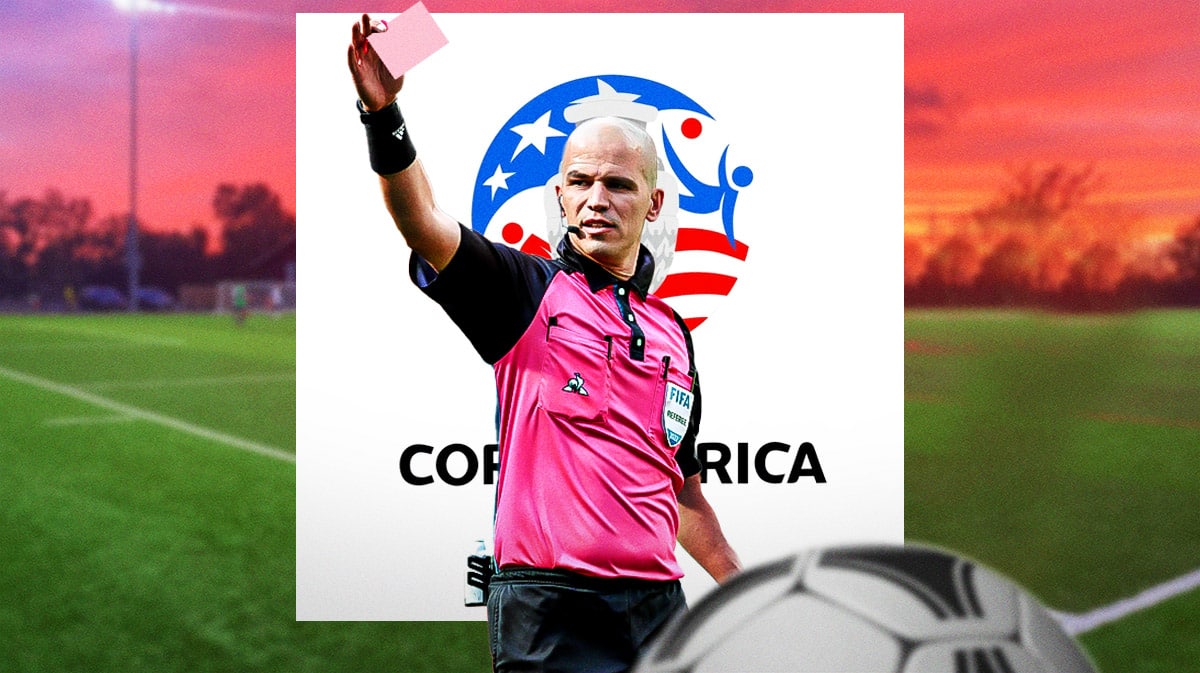In a groundbreaking move, the South American Football Confederation (CONMEBOL) has announced the introduction of a pink card for the 2024 Copa America, reported by GOAL. This new card will be used by match officials to indicate a concussion substitute, marking a significant step in enhancing player safety.
The pink card is set to debut in this summer's Copa America, which will be held in the United States from June 20 to July 14. This new rule allows teams to make a sixth substitution if a player is suspected of suffering a concussion or head injury. The primary objective is to ensure that players receive immediate and appropriate medical attention, reducing the risk of long-term damage from concussions.
CONMEBOL's initiative is part of a broader effort to prioritize player health and safety. The introduction of the pink card aims to provide a clear protocol for handling potential concussions during matches. Here's how it works: when a player is suspected of having a concussion, the team's coach informs the main referee or the fourth official. The official then shows the pink card, signaling that the player needs to be substituted.
This substitution rule is designed to be fair to both teams. When one team uses a pink card substitution, the opposing team is also granted an additional substitute. This ensures that neither team is at a disadvantage due to the use of this important health safeguard.
CONMEBOL's announcement
A statement from CONMEBOL's Directorate of Competitions and Operations explained the rationale behind the pink card: “To the five changes per team authorized by the regulations, a potential sixth will be added to take care of the health of the footballers. This is an extra substitution in the event of suspected head trauma and concussion. To do so, the main referee or the fourth referee must be informed and a pink card will be used.”
Once a player is substituted under the pink card rule, they cannot return to the field of play. This ensures that the player receives thorough medical evaluation and care without the pressure to rejoin the match prematurely. After being substituted, the player is taken to the dressing room or a medical facility for further assessment. Team doctors must then submit a detailed report to CONMEBOL's medical commission within 24 hours, documenting the concussion assessment and any findings. This documentation is crucial for ensuring compliance with concussion protocols and for the ongoing monitoring of player health.
What's ahead for the Copa America
The pink card rule is an advancement that follows the International Football Association Board (IFAB)'s approval of permanent concussion substitutions earlier this year. Although this new law officially comes into effect on July 1, CONMEBOL has opted to implement it ahead of schedule for the Copa America.
The pink card joins the familiar yellow and red cards in football’s disciplinary system. In recent years, additional cards like the white card have been introduced on rare occasions to recognize fair play and sporting gestures, reflecting the sport's evolving approach to officiating.
The introduction of the pink card at the 2024 Copa America represents a significant step forward in protecting players from the dangers of head injuries. By allowing for a sixth substitution specifically for concussion cases, CONMEBOL is setting a new standard in player safety. As football continues to evolve, such innovations are crucial in ensuring that the sport not only remains competitive and exciting but also safe for all players involved. The Copa America will be the first major tournament to adopt this rule, and its implementation will be closely watched by other leagues and competitions worldwide.




















